A good number of spider bites are not harmful, but there are a few that could be dangerous. Culprits – from the venomous brown recluses and black widows to the common house spiders – can nip from a bag containing grapes, lurk at the house beside the lake, hide in a pile of books, or creep out from the gym locker. Knowing about various spider bites treatment can help you remedy cases of this kind, whether indoors or outdoors.
Spider bites can be painful and deadly. It is essential to be in a position to identify the symptoms of a spider bite fast after they occur and to be able to treat them. Identifying and treating spider bites early can make a whole difference between getting an infected wound and remedying the situation. By examining some images of spider bites and getting advice regarding the same, you can be well informed when it comes to treating spider bites.
Also, when you’re outdoors, wear protective clothing. Our article on what to wear during hiking is a must-read, so check it out.
Identifying A Spider
Often, people do not recognize insect bites at an instance but later notice a red spot or bump. If it is an itchy and not painful bite, the high chances are that you are dealing with a mosquito bite and not a spider bite.
Bites from spiders can itch or hurt. Their bites tend to swell more for an extended period of time. Although not smooth, bites from spiders have a central puncture area, which indicates fang marks where a stinger was inserted. If you are bitten by a venomous spider, the swelling and pain could be exaggerated.
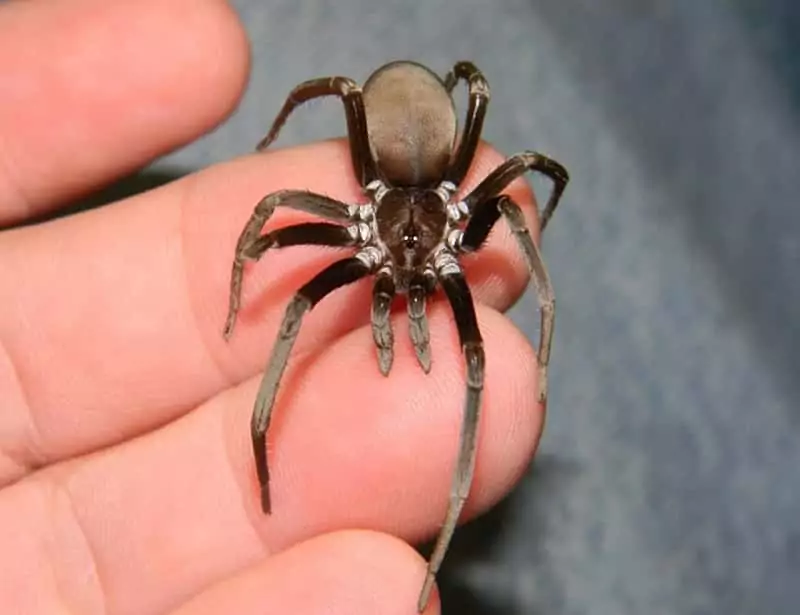
When indoors, you can find these insects under in your attic, under eaves, or in the dusty, neglected sections of the house.
Outdoors, anything close to water tends to attract spider. Your lake house, for instance, could be a suitable habitat for spiders. These insects love to spin their webs in places that have plenty of bugs; therefore, watch out for these nooks and crannies.
When you happen to identify the spider which bit you, carrying it along to the medical center could be helpful in providing a guiding treatment.
If you want to determine a bite from a spider:
Evaluate the Pain
If you are in pain when a spider bites, there is a chance that you were bitten by a black widow spider. Bites from these insects are common but are not always painful. You can also develop fever and severe body aches.
The bite of a brown recluse spider is a slight sting. A good number of times, you will not feel anything.
These spiders hide in and under boxes, in your clothes, or under your bed sheets. You will begin feeling the pain from this a few minutes or hours after the bite. The bite from a brown recluse spider takes a nasty turn once it has been left to progress.
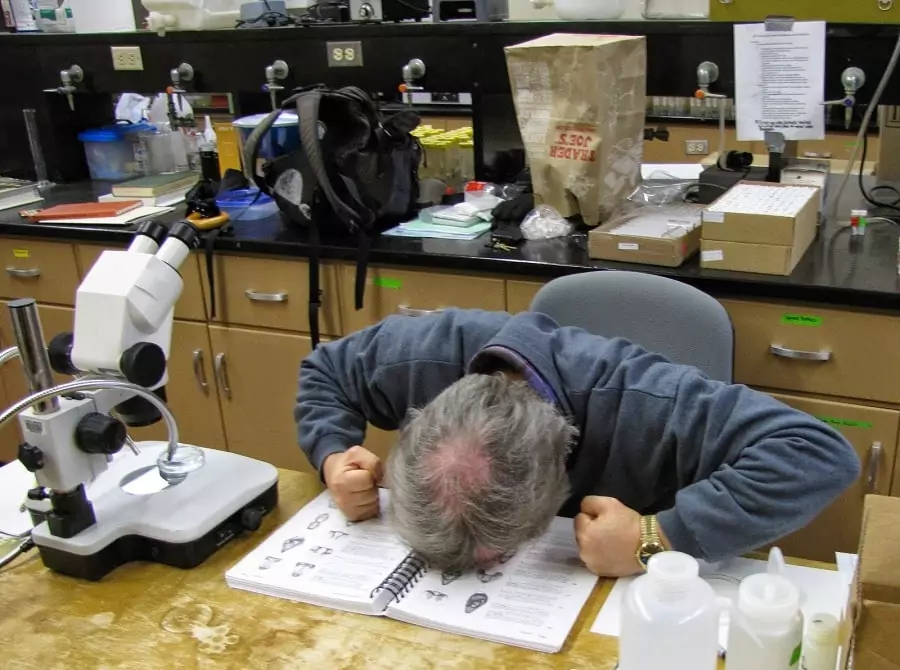
A bite from a hobo spider is similar to that of the brown recluse, and pain takes place minutes or hours after the bite.
Assess the damage to the skin
This is the key to identifying a bite from a recluse spider. You might not recognize when you got a bite, but the area affected turns red, gets blistered, or becomes black. The region with the bite begins small, and its redness spreads.
A spot of dead tissue, black in color, forms in the middle. The dead tissue can be anything from superficial and small to large and deep – sometimes adequate to form a skin graft. The area becomes painful when the tissue begins to die.
Although the hobo spider can cause your skin to damage, the magnitude is not as severe as that of the brown recluse.
Bites from the black widow lead to the creation of red spots which are sometimes difficult to see. While you may not be able to identify the spot, other symptoms could be obvious – a bite can cause a lot of cramping and muscle aches throughout the body for about a week or two. When traveling, always wear socks with your boots or shoes. Check out our article on the best hiking boots to give you more choices and protect yourself from bites.
First Aid for Small Bites
If a spider bites you, wash the area with water and soap. A cool compress can lessen the swelling alongside some medical prescription such as Aleve and Advil can help relieve the pain.
Most bites subside on their own. If discomfort and itching continue, topical steroid cream will be of much help. If you are uncomfortable during the night owing to the pain, the prescription steroid pills are an excellent option.
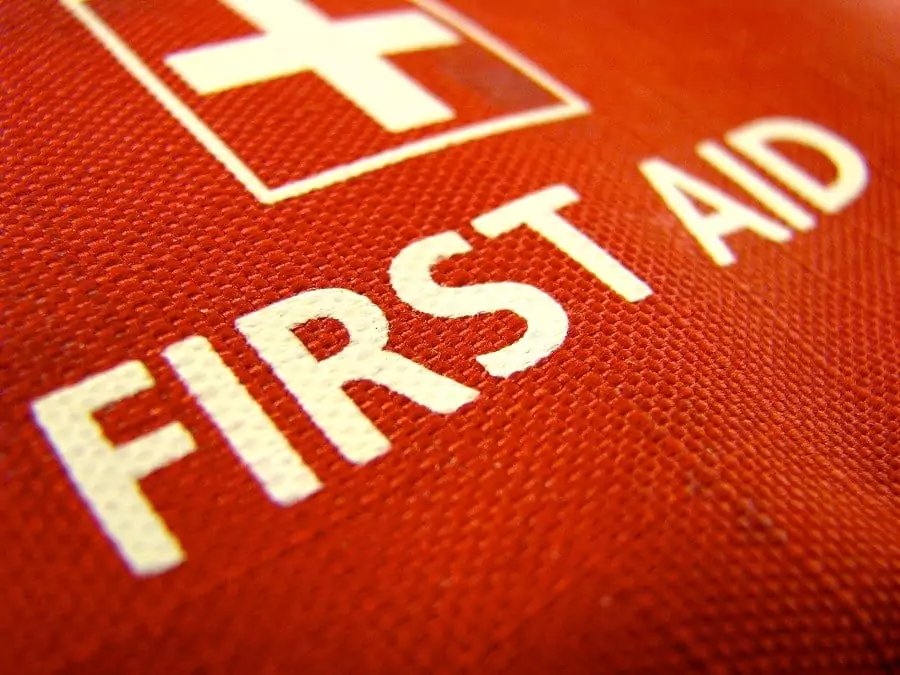
If you scratch the area a lot and open up the skin, you may require a topical antibiotic to prevent infection. Scratching opens the skin and allows harmful bacteria and other microorganisms to get in and cause infection.
With bites in the neck or head, the largest concern is swelling. Significant swelling from inflammatory or allergic reaction could compromise the airway and other functions of the vital face structures. Since some spider bites can cause necrosis (such as the brown recluse), it could be difficult to get treated.
It’s important that you have first aid kits with you, so see our article on the top first aid kits to help in any emergencies.
Venomous Spiders
Spider bites are hardly fatal, but even when they do not kill you, the trauma can be long-lasting and severe. The most dangerous spider species are the brown recluse, hobo spiders, and the black widow.
While the tarantulas, golden silk orb weavers, and sac spiders cannot giver fatal bites, they can still cause so much pain. Most spiders are active during the night; therefore, avoid sticking your fingers or hands into areas you cannot see – especially in forested regions and trail shelters.
If bitten, make sure you clean the affected area with water and soap and use some ice packs to soothe the pain. In case the situation gets out of hand, make an effort of visiting a medical practitioner to help remedy it.
Black widows
With their long legs, shiny bodies, and red hourglass marking, the black widow species are quite simple to identify. However, their bites are known to be very painful.
These spiders bite in the gym locker rooms since they are attracted to moist and dark places. They can also be found in areas with woodpiles.
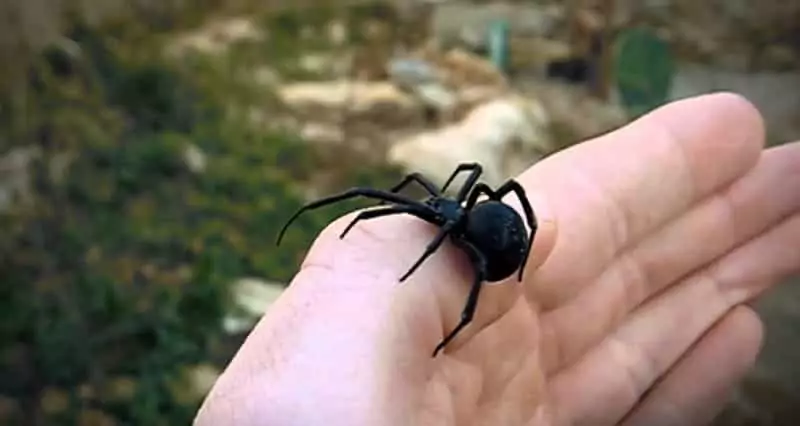
At first, the skin around the bite swells, and you may be able to identify the fang marks. These marks are accompanied by redness, burning, and swelling.
Later, the pain increases and spread to other parts including the belly and the back. You could also experience rigidity and severe cramping in your abdominal muscles.
There are other symptoms that you may experience. These include tremors, nausea, sweating, difficulty in breathing, restlessness, fever, and a rise in temperature and blood pressure. The pain normally lasts up to twelve hours, with the symptoms possibly continuing for several days.
If you think you have been bitten by this or any other venomous spider. Wash the area and elevate it to prevent the venom from spreading to other parts. You can then call a poison control center for advice.
They may tell you to seek emergency care in your nearest health center. Treatment for a black widow spider bite can include anti-venom administration, muscle relaxants, pain medications, antibiotics, steroids, and a tetanus shot. All these will depend on your symptoms.
Rarely, a bite from a poisonous spider can lead to a life-threatening condition known as anaphylaxis. If you begin having swellings on your lips and tongue, an experience wheezing, short of breath, light-headedness, and dizziness, then that is not a good thing. Call an emergency number for medical assistance.
Brown recluses
The brown recluse spiders are well-known for their conspicuous violin patterns on their surface as well as their rare but dangerous bites. These insects can be found in the Midwestern and Southeastern states but can occasionally be seen elsewhere.
As their name suggest, these spiders are more reclusive than aggressive, and only bite when they have been threatened.
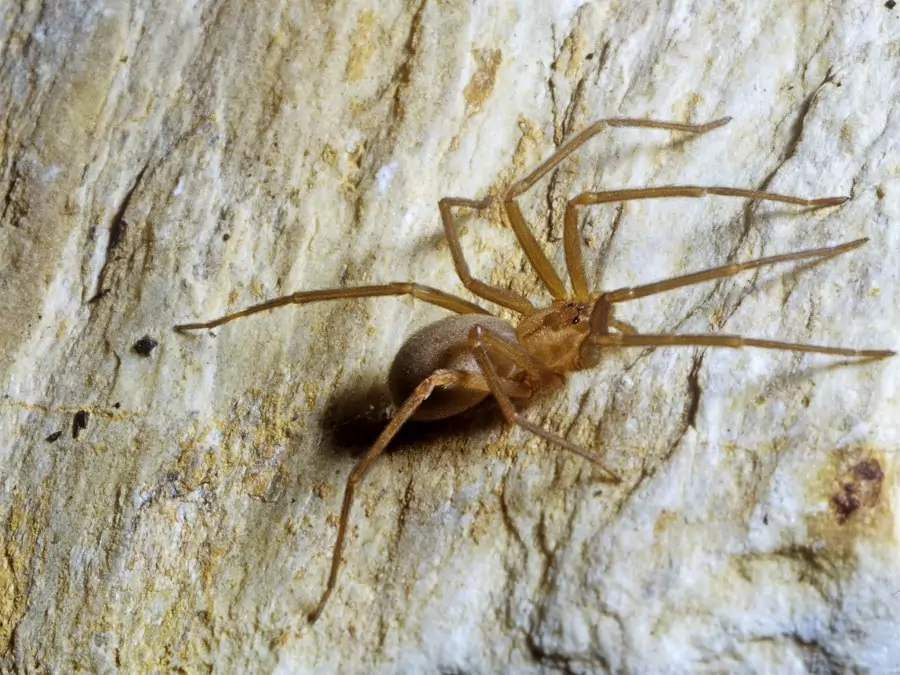
At first, some bites from the recluses may be painless or could have a slight burning sensation. However, severe itching and pain can develop with time, along with other symptoms such as vomiting and nausea, muscle aches, and fever.
Even when delivered in small quantities, the venom from a recluse is destructive and toxic. Enzymes found in these venoms attack the nearby cells, destroying fat, skin, and blood vessels surrounding the bite, resulting in necrosis.
With this condition, the area bitten turns dark purple and black in the center, making it look like a deep bruise of scab.
As the immune system of the body responds to the toxins, severe side effects develop. This could include blood-clotting problems, destruction of the red blood cells, acute kidney destruction, and death. However, death from these spiders’ bites are rare and often occur in small kids.
In other cases, cartilage and skin damage can be severe, leading to surgery and leading scars among other lifelong aftereffects. For this case, the emergency treatment is similar to treatment offered when bitten by a black widow spider.
Treatment Of Poisonous Spider Bites
It is important to see a doctor. But if it is impossible to get to one, you can do the following:
If you are almost certain that the spider was a brown recluse or the hobo, disinfect your wound and keep your breathing slow. This will prevent the venom from spreading rapidly. Put some ice and keep the wounded area above or at the heart level.
It is very rare for the bites to be fatal but there is the possibility of a secondary infection if you do not do everything possible to prevent that from happening. If you notice that the dark layer of dead skin – also called eschar – is sloughing off, begin treating the wound like a typical wound.
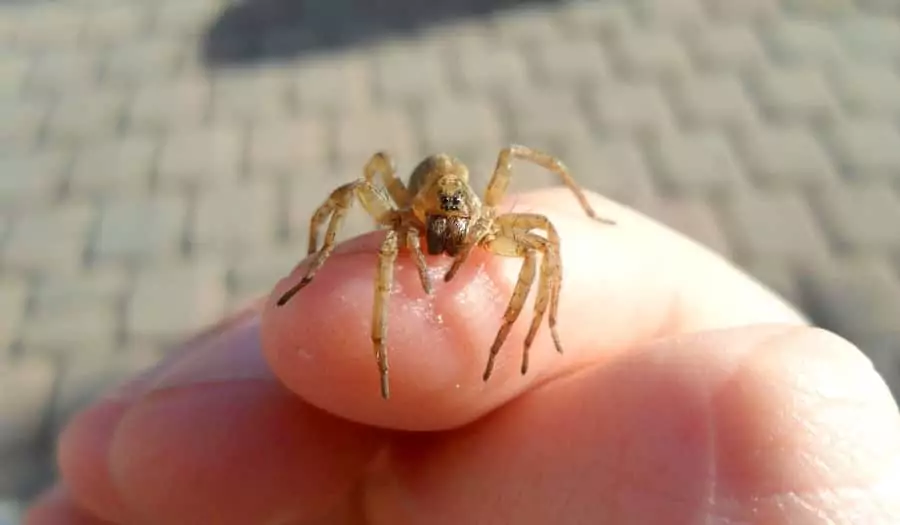
Always keep the area clean and covered and apply honey or antibiotic cream. Large wounds may take several weeks to heal. If you notice any signs of infection, you will need to take oral antibiotics.
Use over the counter pain reliever to treat the pain. If the spider was likely to be a black widow, take pain relievers like aspirin or ibuprofen to relieve the muscle cramps.
A bite from the black widow can turn fatal within minutes to hours. It can cause severe chest and abdominal pain resembling a heart attack or appendicitis. It can make your BP rise and may need treatment (possible signs are flushed faces and a quickened pulse).
If you are not in a position to see a doctor, rest so you can lower your blood pressure. In worse case scenarios, you may be required to take some anti-venom.
Home Remedies for Treating Spider Bites
If a venomous spider such as the black widow or recluses bites you, seek medical attention immediately. If you are uncertain whether a venomous spider was involved, seek medical assistant just to be a hundred percent sure.
Symptoms of a poisonous bite can include intense pain, several swelling, muscle spasms, stiffness, abdominal pain, breathing difficulty, fever and chills, and lightheadedness.
Like some biting insects, spiders don’t feed on humans. They usually bite to defend themselves from what they could be harmful to them. Most bites from spiders are not an issue of concern.
When treating bites, the main objective is to remedy or neutralize the bite and remove any toxins from the body. A lot of effective home remedies can help mitigate symptoms and encourage healing. If the symptoms persist after a few days, you are advised to seek medical attention.
Here are some remedies that could help you treat a spider bite. Note that the information provided is for informative purpose and must not be considered as medical advice. This steps can only be used for mild bites.
Ice Remedy
When a spider bites you, the first thing you have to do is clean the area affected using mild soap and water and then apply ice packs on the wound.
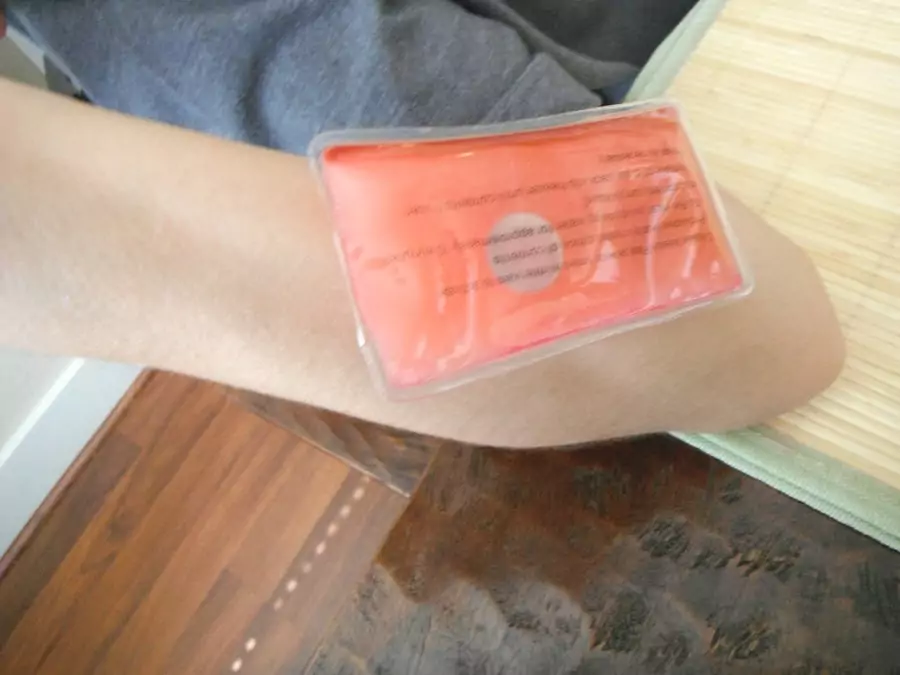
The cold temperature from the ice will help in numbing the area, soothing the itchy sensation, and reducing inflammation and swelling.
- Wrap some ice cubes in a towel and put it on the bite at 10 minutes intervals. You can repeat this as required in the initial twenty-four hours.
- Alternatively, you may place the affected area in running water for some few minutes.
Note – Do not place the ice directly on the bite
Baking Soda
You can actually use baking soda to treat spider bites. The alkaline substance can help in drawing out the venom.
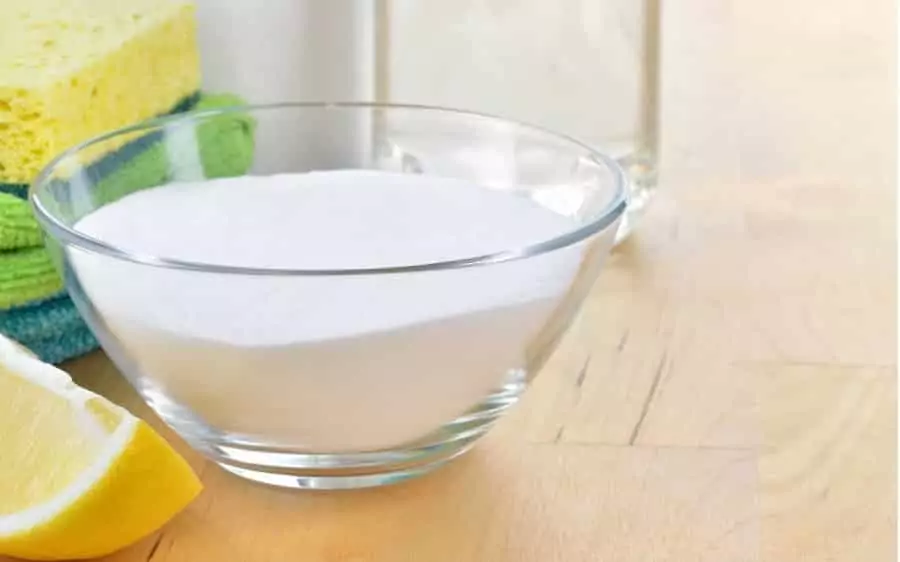
This reduces pain, inflammation, and itching.
- Mix a teaspoon of baking soda with three teaspoons of water
- Gently rub the mixture on the bite using cotton for about five minutes
- Wash the affected area with some lukewarm water
- You can repeat the process after a few hours if discomfort continues
Salt Remedy
Another natural remedy for spider bites is salt. This substance as an anti-inflammatory and antiseptic properties.
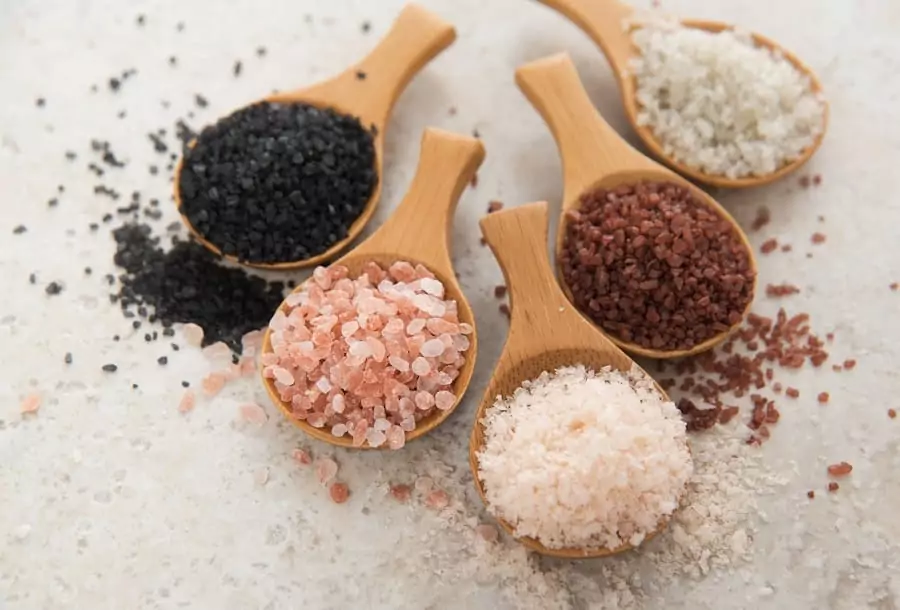
Salt can draw venom out of a bite effectively to enable a quick recovery. Additionally, it mitigates redness and inflammation.
- Use lukewarm water to wash the affected area
- Sprinkle salt on a wet cloth
- Bandage the cloth to the affected area or a few hours, then remove it
- Repeat the process as needed
Potato Remedy
Another efficient and easy technique is to utilize a potato. A potato can minimize the inflammation and itching, mainly due to its soothing and anti-irritating properties.

Additionally, it keeps the bite moisturized to enable quick healing.
- Peel a large potato wash it carefully and thoroughly
- Use a grater to grate the potato
- Put some wet potato shred in a piece of cloth
- Place the potato poultice on the bite
- Leave the wet potato shreds inside the thin fabric until it begins to dry
- Dispose of the potato poultice, and use warm water to clean the area
- Use a fresh poultice repeatedly until the symptoms are gone
Aspirin Remedy
Minor symptoms can also be relieved using aspirin. Aspirin can neutralize venom and promote a quick recovery process.
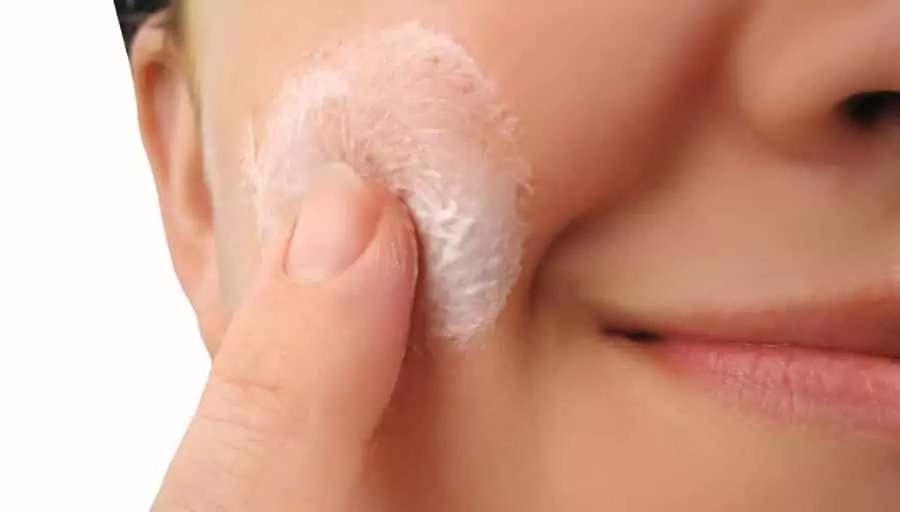
Moreover, its anti-inflammatory properties can control swelling and inflammation effectively.
- Soak one to two tablets of aspirin in some water to create a paste
- Rub the paste on the bite
- Leave it for some hours then use lukewarm water to wash it off
- Repeat step one and two if needed
Lemon Juice Remedy
Lemon juice can also be used to keep your itching, inflammation, and swelling at bay.

Since it is natural astringent that helps to quickly dry out the rashes caused by bites and prevent infection.
- Use the juice from fresh lemons and apply it on the affected area
- Rinse it off using lukewarm water
- Alternatively, use a piece of lemon to rub the bite 2 to 3 minutes
- Rinse it off after a waiting period of 5 minutes
Aloe Vera Remedy
An aloe vera plant or gel can be use in treating spider bites. With an antiseptic and anti-inflammatory properties, the gel is able to reduce swelling, itching, and pain.
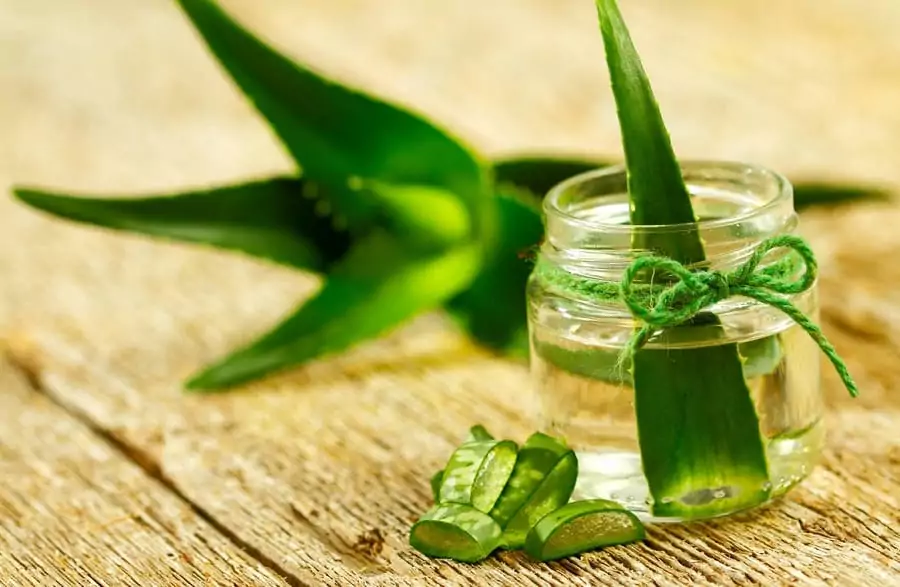
The aloe vera can also help in faster healing by moisturizing the affected areas.
- Wash the aloe vera leaf thoroughly
- Slit it open so as to extract the gel
- Apply the gel on the bite
- Reapply several times a day
Note – Put the remaining gel in a refrigerator
What Have We Learned?
Thanks to the anti-venom, it’s rare for one to die from the bite of a spider. Therefore, spiders’ bites are hardly fatal, unless you are bitten by one of the most venomous species and not able to get the assistance you need.
When you get a spider bite, do no panic. Follow the guidance provided in this article. If the symptoms are extreme, make an effort of seeing a doctor for further assistance.
That said, has a spider bitten you before? Please let us know. Feel free to post in our comment section.

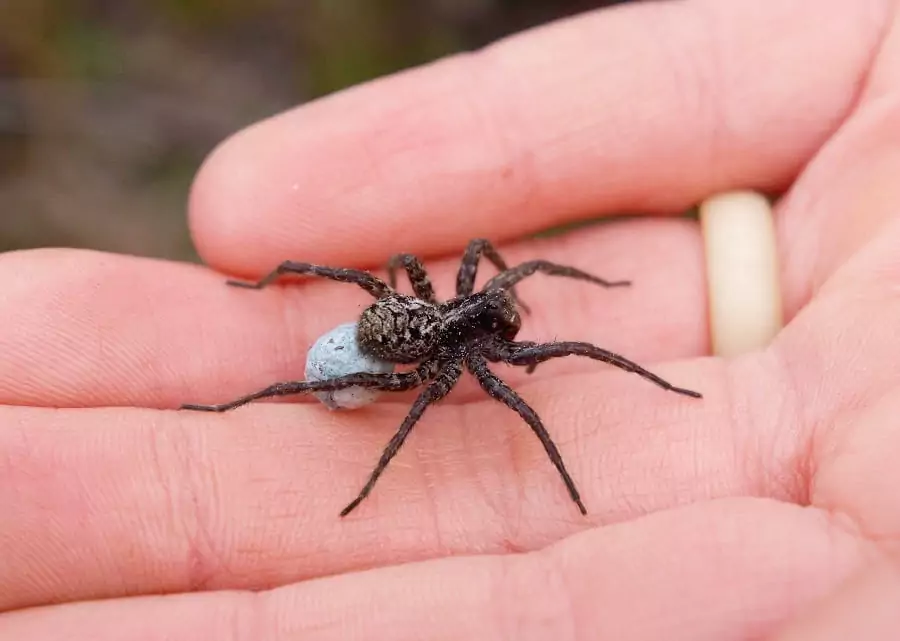


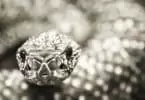



Thank you so much for sharing, this first aid knowledge will be very useful in case of an emergency. As an avid backpacker, I know that spiders can get at you when you least expect them so knowing what to do in such a case is golden knowledge for someone like me.
Wear protective clothing at all times especially when you’re out on the woods. Gloves, hats, socks and protective jackets and shirts are all helpful. When someone gets bitten, take that person to a medical facility right away.
Do these remedies apply to other bug bites? Most times by the time I realize that I have been bitten, the insect is already gone and I can not tell whether it was a spider or any other bug. I find this information really useful but I hope I can apply it to all types of bug bites.
When in doubt and you have an allergic reaction, make sure to go to the ER to have yourself checked. While this article will help you, it’s not a replacement for professional consultation with your doctor.